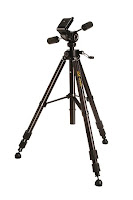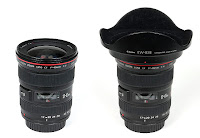Every hobby has its accessories. It�s true that there are some things you really need to buy to support your favorite activity and digital photography is no exception. Here�s a suggestion list for buy accessories:
A camera

It goes without saying that you need a camera, but don�t rush into the purchase. You can even use a 35mm camera to begin with, and scan the images into the PC for editing and printing. If you�ve read the previous sections of this chapter and decided what features are important to you, you can shop like a pro.
An adequate PC


Digital cameras are power hogs. I highly recommend buying two sets of NiMH rechargeable batteries, since they�ll pay for themselves before you can say �alkaline.� If your camera didn�t come with an AC adapter, I suggest that you buy one from the camera vendor�s accessories store so you can power the camera when you�re transferring images to the PC or displaying images on a TV.
Memory

Buy the biggest memory card you can afford. The measly 8MB memory card that came with your camera won�t last a day when you�re on vacation, so having a 128MB or 256MB card is almost essential. A spare card, if it�s in the budget, can keep you going when you fill up your main card far away from your PC.
Tripod

If you want to extend your photography into the world of close-ups or long-range telephoto images, a tripod is a necessity. It needn�t be large or heavy, because most digital cameras are significantly lighter than their 35mm counterparts.
Lenses and filters

Reference: How To Do Everything With Your Digital Camera (Mc Graw Hill)
A camera
It goes without saying that you need a camera, but don�t rush into the purchase. You can even use a 35mm camera to begin with, and scan the images into the PC for editing and printing. If you�ve read the previous sections of this chapter and decided what features are important to you, you can shop like a pro.
An adequate PC
Crunching data to process digital images takes a bit more horsepower than you might be used to when working with Word or Excel. I suggest using a Pentium III�class PC with no less than 128MB of RAM. If you want to work with really big images�like 6-megapixel pictures�then consider 256MB of RAM. You might be surprised to learn that more memory is generally more useful than a faster processor.
Batteries
Batteries
Digital cameras are power hogs. I highly recommend buying two sets of NiMH rechargeable batteries, since they�ll pay for themselves before you can say �alkaline.� If your camera didn�t come with an AC adapter, I suggest that you buy one from the camera vendor�s accessories store so you can power the camera when you�re transferring images to the PC or displaying images on a TV.
Memory
Buy the biggest memory card you can afford. The measly 8MB memory card that came with your camera won�t last a day when you�re on vacation, so having a 128MB or 256MB card is almost essential. A spare card, if it�s in the budget, can keep you going when you fill up your main card far away from your PC.
Tripod

If you want to extend your photography into the world of close-ups or long-range telephoto images, a tripod is a necessity. It needn�t be large or heavy, because most digital cameras are significantly lighter than their 35mm counterparts.
Lenses and filters

The time may come when you want to take pictures�like extreme close-ups, wide-angle shots, or extreme telephotos�that are beyond the range of the lens that came with your camera. Likewise, you might want to reduce glare or add other special effects to your images. If that�s the case, you want lenses and filters for your camera. You may not need them right now, but consider them an advanced purchase for later on.
Camera bag

Choose a bag that lets you arrange your camera and accessories in a way that they�re protected from theft and damage, but easy to use when the time comes to shoot a picture. Look for bags that don�t really look like they�re holding camera gear� that might make them less of a target for thieves.
Image editing software
Camera bag
Choose a bag that lets you arrange your camera and accessories in a way that they�re protected from theft and damage, but easy to use when the time comes to shoot a picture. Look for bags that don�t really look like they�re holding camera gear� that might make them less of a target for thieves.
Image editing software
Your camera probably came with some rudimentary image editor, but it may not be up to the task. Try a few out, and buy the image editor that you like the best. I typically use Photo Shop and DDP, for instance.
Printer
Get a good color inkjet printer and premium photo paper. Don�t skimp on this step�when the time comes to print your pictures, why bother having a good camera, this book, and taking the time to improve your photo skills if you�re going to print pictures on a budget printer with lousy paper?
Reference: How To Do Everything With Your Digital Camera (Mc Graw Hill)
0 comments:
Post a Comment